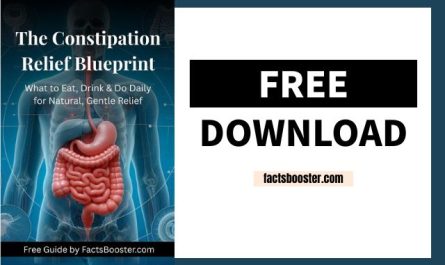Vitamin C, an essential nutrient crucial for maintaining overall health, becomes a focal point when lacking in daily consumption. Around the globe, many individuals face health challenges directly tied to vitamin C deficiency. This blog aims to shine a light on identifying and combatting this deficiency effectively.
Key Takeaways:
- Understand the varied signs and symptoms of vitamin C deficiency.
- Grasp the potential health risks tied to inadequate vitamin C intake.
- Learn actionable steps towards preventing vitamin C deficiency.

Signs and Symptoms of Vitamin C Deficiency
Vitamin C deficiency, a notable health challenge, manifests uniquely across a spectrum. Symptoms such as fatigue, weakness, gum disease, easy bruising, and joint pain unveil the complex roles Vitamin C plays within the body. These signs critically affect daily functioning and wellness, emphasizing the deficiency’s potential to deteriorate overall health significantly.
1. Fatigue
A deficiency of Vitamin C has been linked to fatigue. This lack can significantly diminish energy levels in the body, making one feel constantly tired. Without sufficient Vitamin C, the body struggles to perform its essential functions efficiently. This struggle leads to an overall sense of weariness, which can impede daily activities and reduce quality of life.
2. Weakness
A deficiency of Vitamin C often leads to marked physical weakness. This condition saps the body’s previously robust strength and vitality, leaving individuals feeling drained and debilitated. With the vital role Vitamin C plays in energy production and muscle function, its lack can significantly impair one’s ability to perform daily tasks efficiently.
3. Gum disease
A deficiency of Vitamin C has detrimental effects on gum health. This crucial nutrient helps in maintaining the integrity of gum tissues. Without adequate Vitamin C, gums become fragile and prone to infection, a condition often leading to gum disease. Emphasizing oral health cannot be overstated; ensuring vitamin-rich diets can fend off these concerns significantly. (1)
4. Easy bruising
Lack of Vitamin C undermines the skin’s resilience, rendering it prone to easy bruising. This deficiency impairs collagen formation, a critical component for the skin’s strength and healing capabilities. Subsequently, even minor traumas may lead to noticeable bruises, signaling the body’s cry for more nutrition. Bridging this nutrient gap is crucial for maintaining healthy, bruise-resistant skin.
Read more:
5. Joint pain
A deficiency of Vitamin C has been closely linked to joint pain, severely affecting an individual’s mobility and overall sense of well-being. Without enough of this essential nutrient, your joints might suffer, leading to discomfort and hindered movement. This pain not only limits daily activities but can also degrade quality of life over time, emphasizing the urgency of addressing any potential lack of Vitamin C. (2)
Health Implications of Vitamin C Deficiency
Vitamin C deficiency can lead to severe health issues if not addressed promptly. A lack of vitamin C weakens the immune system, making the body more susceptible to infections. It impairs wound healing, slowing recovery from injuries and making it easier for infections to take hold.
Scurvy, a severe outcome, was once prevalent among sailors without access to fresh produce. Today, it serves as a reminder of vitamin C’s crucial role in health. Additionally, research has linked insufficient vitamin C intake to cardiovascular risks, underscoring the importance of adequate consumption for heart health.
1. Increased susceptibility to infections
Vitamin C serves as a pillar for our immune system. Its deficiency has been shown to weaken our defenses, making us more susceptible to infections. This vital nutrient aids in the production of white blood cells, which are essential warriors in the fight against pathogens.
Without adequate Vitamin C, these cells cannot perform at their best, leaving you exposed to a myriad of health issues. Ensuring sufficient intake of Vitamin C is crucial for maintaining a robust immune system and shielding your body from harmful infections.
2. Imped Impaired wound healing
Vitamin C plays a pivotal role in the healing of wounds. Its deficiency hampers the body’s ability to repair and regenerate tissue, leading to a prolonged recovery period. This crucial nutrient aids in the production of collagen, essential for wound closure.
Without adequate Vitamin C, injuries may not only take longer to heal but the risk of infection and complications increases. Ensuring sufficient intake of this vitamin accelerates healing, showcasing its undeniable importance in recovery processes.
3. Scurvy
Scurvy, a severe form of vitamin C deficiency, has plagued humanity for centuries. Historically, it decimated sailors on long voyages, lacking fresh food. Today, it’s rare but can still occur, highlighting the body’s crucial need for vitamin C. The condition underscores the dangers of neglecting dietary vitamin C, manifesting in life-threatening symptoms when ignored. (3)
4. Potential cardiovascular risks
Research has illuminated the link between a deficiency of Vitamin C and heightened cardiovascular risks. Those lacking Vitamin C may find themselves more susceptible to such conditions. (4)
This connection stems from vitamin C’s role in maintaining the health of blood vessels. Without adequate levels, the body struggles, leading to potential heart-related complications. Thus, understanding this correlation is crucial for anyone concerned about their heart health and overall well-being.
Causes of Vitamin C Deficiency
Lack of vitamin C mainly stems from inadequate dietary intake. People often consume insufficient amounts of fruits and vegetables rich in this vital nutrient. Smoking has also shown to exacerbate the issue, needing more vitamin C while hindering its absorption.
Additionally, limited access to fresh produce due to economic or geographical barriers significantly contributes to this health concern. Certain health conditions may impair the body’s ability to absorb or increase the need for vitamin C, pushing individuals closer to a deficiency state.
Inadequate dietary intake
Poor dietary habits or a lack of access to foods rich in Vitamin C often results in deficiency. Many fail to consume enough fruits and vegetables, the primary sources of this essential nutrient. This shortfall directly contributes to the symptoms of Vitamin C deficiency, affecting overall health and vitality. Understanding the importance of nutritional choices is crucial in preventing this condition.
Smoking
This occurs because tobacco smoke includes free radicals that deplete Vitamin C, an essential antioxidant. Consequently, smokers have a diminished capacity to absorb this vital nutrient from their diets. This reduced absorption rate means that individuals who smoke are significantly more susceptible to experiencing Vitamin C deficiency than non-smokers. They must ingest higher quantities of Vitamin C to counteract the effects of smoking on their bodies.
Limited access to fresh fruits and vegetables
Economic challenges and geographical barriers play critical roles in limiting access to fresh, nutritious foods. They create environments where obtaining sufficient amounts of Vitamin C becomes a significant struggle.
Individuals in low-income regions often find the cost of fresh produce prohibitively expensive. Likewise, those living in remote or urban food deserts face few options for buying fresh fruits and vegetables. This scarcity elevates the risk of Vitamin C deficiency among vulnerable populations.
Certain medical conditions
Illnesses such as Crohn’s disease, ulcerative colitis, and some forms of cancer can drastically reduce the absorption rates of Vitamin C from your diet. This creates a ripple effect; while your intake may seemingly meet the recommended daily allowance, your body might not actually benefit from it.
Thus, individuals with these health conditions are at a heightened risk of developing a deficiency of Vitamin C, spotlighting the importance of tailored dietary consideration and medical supervision to prevent potential health complications.
Who Is At Risk
People living in poverty often lack access to fresh fruits and vegetables, making them prone to vitamin C deficiency. Smokers require more vitamin C than non-smokers, thus facing a higher risk. Elderly individuals, due to decreased dietary intake and absorption, also fall into the high-risk category. Understanding these vulnerabilities contributes to targeted interventions and prevention strategies.
How to Prevent
You can mitigate vitamin C deficiency through mindful nutrition and lifestyle choices. Ensure a diet rich in vitamin C by incorporating an abundance of fruits and vegetables, particularly citrus fruits, strawberries, kiwi, bell peppers, and green leafy vegetables.
Limit smoking or quit altogether, as smoking significantly depletes your body’s vitamin C levels. Additionally, recognize the importance of fresh produce in your diet, seeking out local or community-supported agriculture to improve access to wholesome foods.
For those with medical conditions affecting vitamin C absorption, consulting healthcare professionals for tailored advice is paramount. Embracing these strategies will fortify your defense against this deficiency.
Conclusion
Recognizing and actively managing Vitamin C deficiency is crucial for maintaining optimal health. You should assess your intake of this vital nutrient and seek medical advice if a deficiency is suspected.


